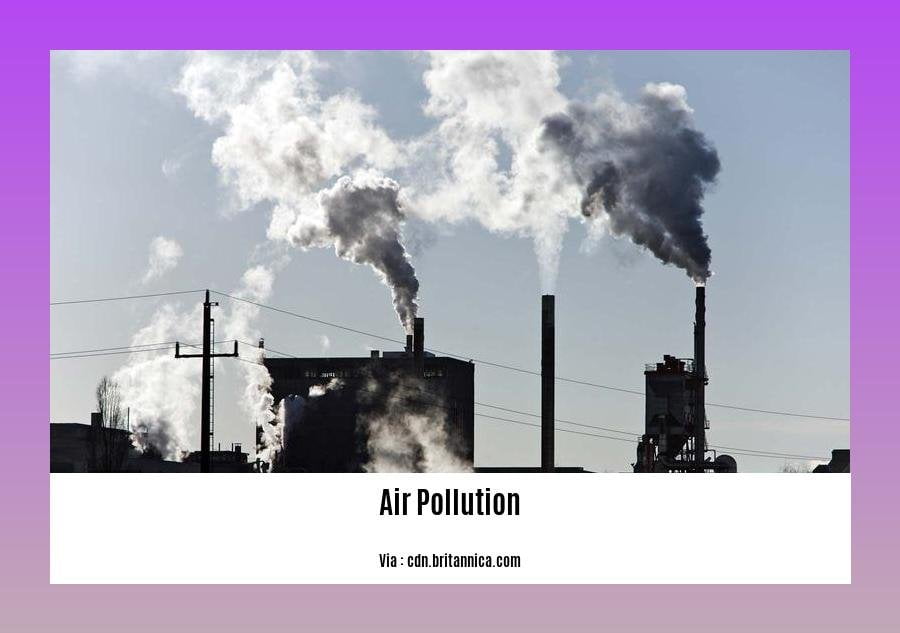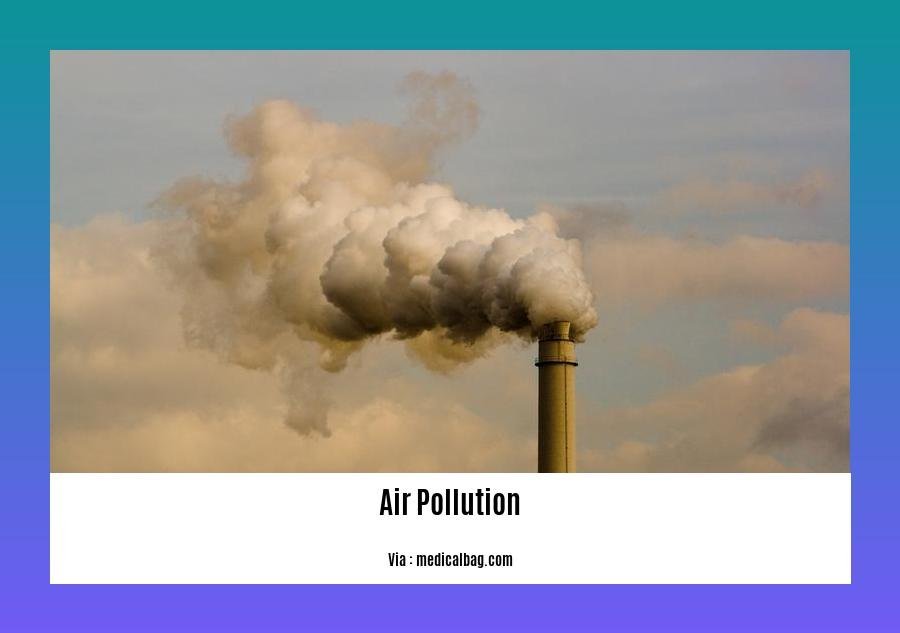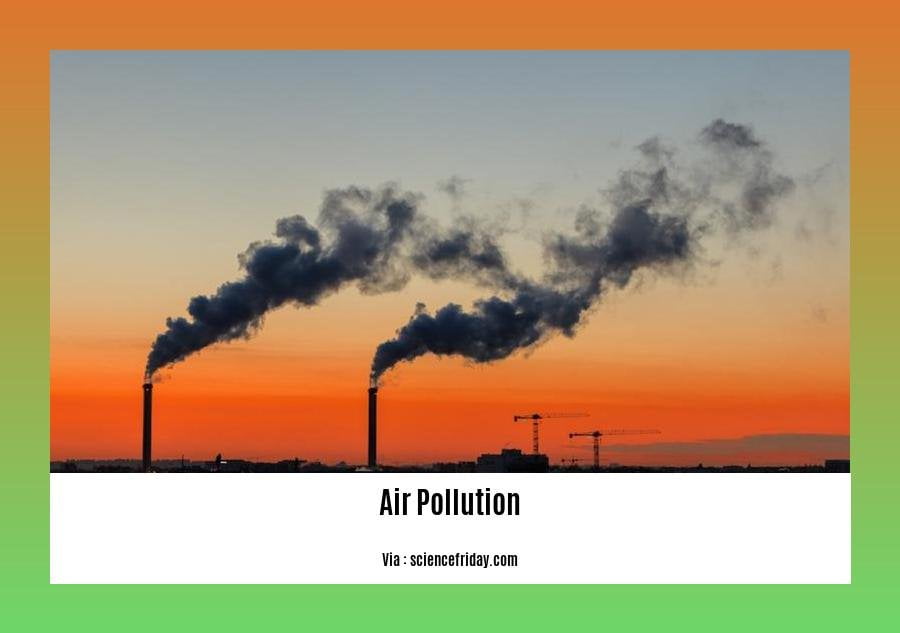Discover the profound ramifications of air pollution on animal life with our article, “The Impact of Air Pollution on Animals: Understanding How Does Air Pollution Affect Animals”. Unlocking the secrets behind this critical issue, we delve into the detrimental effects of air pollution on the health and well-being of various animal species. By exploring the intricate relationship between pollution and animals, we shed light on the alarming decline in biodiversity and ecological balance caused by human activities. Join us as we unravel the complexities of this pressing environmental concern and emphasize the urgent need for collective action to mitigate air pollution and protect the world’s creatures.
Key Takeaways:
- Air pollution can have significant impacts on animals, including respiratory issues, reduced lung function, and harm to wildlife populations.
- Animals exposed to air pollution can experience altered behavior, accumulation of toxins, and disruption of endocrine function, leading to organ injury and increased vulnerability to stress and diseases.
- Air pollution can lower reproductive success and increase the risk of death, cancer, and sensitivity to pesticides in animals.
- Changes in the abundance of species due to air pollution can have cascading effects on dependent species and lead to a loss of biodiversity.
- Efforts to reduce air pollution are crucial to protect the well-being and survival of animals, as they are exposed to the same pollutants as humans and can suffer similar health effects.
Does Air Pollution Affect Animals?

Air pollution is not only an issue that affects humans; it also poses a significant threat to animals and their ecosystems. The harmful effects of air pollution on animals are diverse and wide-ranging, impacting their health, behavior, and overall well-being.
Respiratory Issues and Reduced Lung Function
Just like humans, animals breathe in the same polluted air, leading to respiratory problems and reduced lung function. The presence of air pollutants can irritate and inflame their respiratory systems, making it difficult for them to breathe properly. This can result in coughing, wheezing, and even long-term damage to their lungs.
Harm to Wildlife Populations
Air pollution can harm wildlife populations in various ways. For instance, toxic chemicals present in air pollutants can poison animals, disrupting their endocrine function and causing organ injuries. This can make them more vulnerable to diseases and other stresses, often leading to a decrease in their reproductive success. In severe cases, exposure to air pollution can even lead to the death of animals.
Alteration of Animal Behavior
Air pollution can cause animals to change their behavior in numerous ways. For example, certain pollutants can interfere with animals’ ability to navigate and find food, resulting in disrupted migratory patterns or reduced feeding activity. Additionally, exposure to air pollution can lead to changes in mating and social behaviors among animals, affecting their overall population dynamics.
Accumulation of Toxins in Their Bodies
Animals living in polluted environments face the risk of accumulating toxins in their bodies. This is particularly concerning for species higher up in the food chain, as they can ingest pollutants that have been absorbed by plants or smaller animals. The accumulation of toxins in their bodies can lead to various health issues, including organ damage and an increased risk of cancer.
Disruption of Endocrine Function
Air pollution can disrupt the endocrine function of animals, affecting their hormonal systems. This disruption can lead to reproductive problems, developmental issues, and hormonal imbalances. Species that heavily depend on specific hormone levels for breeding or other crucial life processes may experience significant challenges as a result of this disruption.
Loss of Biodiversity and Overpopulation
Air pollution has a detrimental impact on the overall biodiversity of ecosystems. When certain animal species are negatively affected by air pollution, it can influence the abundance and health of other species that depend on them. This disruption can lead to a loss of biodiversity, as well as favor the overpopulation of certain species that are more tolerant to polluted environments.
Conclusion
It is clear that air pollution has far-reaching consequences on animals, jeopardizing their health, behavior, and overall survival. From respiratory issues and harm to wildlife populations to changes in behavior and the accumulation of toxins, the impacts of air pollution on animals are extensive and significant. To protect the well-being and diversity of animal species, concerted efforts must be made to mitigate air pollution and create a cleaner environment for all living beings.
References
- Source 1
- Source 2
Does electricity affect water? Find out more about the impact of electricity on water by visiting our article here.
Curious about whether the High Voltage Detox Permanent 5 Day Flush really works? Discover the truth behind this detox method by checking out our article here.
Wondering if power affects hot water? Explore the relationship between power and hot water in our informative article here.
Will Air Pollution Affect Animals?

Air pollution is a pressing concern that affects not only human health but also the well-being of animals and the overall health of ecosystems. The detrimental effects of air pollution on animals are far-reaching and can lead to severe consequences for various species. Let’s explore how air pollution specifically impacts animals and why it is crucial to address this issue.
The Impact of Air Pollution on Animals
Air pollution poses significant threats to animals, ranging from respiratory issues to reproductive problems and even increased mortality rates. The following are some of the key effects of air pollution on animals:
Respiratory Problems and Reduced Lung Function: Much like humans, animals exposed to polluted air can experience respiratory issues, such as lung damage, inflammation, and reduced lung function. These problems can severely impact an animal’s ability to thrive and survive.
Harm to Wildlife Populations: Air pollution can lead to a decline in wildlife populations. Animals exposed to high levels of pollutants may experience reduced reproductive success, leading to decreased population sizes. This loss in biodiversity can disrupt the delicate balance of ecosystems and have cascading effects on other species.
Behavior Alteration: Polluted air can cause animals to change their behavior in various ways. For example, certain species may alter their migration patterns or feeding habits to avoid highly polluted areas. These behavioral changes can disrupt ecological interactions and impact the overall functioning of ecosystems.
Accumulation of Toxins: Animals living in polluted environments can accumulate harmful toxins in their bodies. These toxins can have long-term effects on the animals’ health, making them more vulnerable to diseases and other stressors.
Increased Vulnerability to Diseases: Air pollution weakens animals’ immune systems, making them more susceptible to diseases. Animals exposed to polluted air may experience higher rates of infections and diseases, further jeopardizing their overall well-being.
The Extensive Consequences for Animals and Ecosystems
The effects of air pollution on animals go beyond individual health concerns. Changes in animal abundance due to air pollution can create ripple effects throughout ecosystems. When certain species decline in numbers, it can disrupt the intricate web of interdependencies within ecosystems.
Animals serve as valuable indicators of ecosystem responses to air pollution. By observing changes in animal populations, researchers can gain insights into the overall health of an ecosystem. Consequently, shifts in species abundances can have far-reaching consequences for ecological balance and biodiversity.
Key Takeaways:
- Air pollution has detrimental effects on animals, including respiratory issues, harm to wildlife populations, altered behavior, toxin accumulation, increased vulnerability to disease, and disruption of ecosystem health.
- Animals exposed to polluted air can experience lung damage, reduced lung function, and inflammation.
- High levels of air pollution can lead to a decline in wildlife populations and disrupt the delicate balance of ecosystems.
- Polluted air can cause animals to alter their behavior, impacting their migration, feeding habits, and overall ecological interactions.
- Animals accumulate toxins in their bodies when exposed to polluted environments, making them more vulnerable to diseases and stressors.
- Monitoring changes in animal populations is crucial for understanding the overall health of ecosystems and the impacts of air pollution on biodiversity.
For more information on this topic, you can refer to the following sources:
- Air pollution: effects on wild animals – Canada.ca
- How Does Air Pollution Affect Animals: Irreparable Damage to Wildlife
FAQ
Q1: Can air pollution affect animals?
A1: Yes, air pollution can have significant effects on animals. It can lead to respiratory issues, harm wildlife populations, alter animal behavior, and even cause organ injury and death.
Q2: How does air pollution affect animals’ health?
A2: Air pollution can have various negative impacts on animals’ health. It can disrupt the endocrine function, increase vulnerability to stresses and diseases, lower reproductive success, and weaken the immune system. Animals exposed to air pollution may also have a higher mortality rate, with respiratory problems, heart problems, and cancer being common causes.
Q3: Will air pollution affect animals differently than humans?
A3: Animals are exposed to the same air pollutants as humans and can face similar health effects. However, some animals have respiratory systems that are more sensitive than humans, making them more susceptible to lung damage, heart problems, inflammation, and cancer.
Q4: What are the specific health issues animals can experience due to air pollution?
A4: Animals exposed to air pollution can experience a range of health issues, including poisoning due to disrupted endocrine function and organ injury, respiratory problems, weakened immune system, eye irritation and infections, nosebleeds, inflammation of the lung tissue, and liver damage. They may also suffer from increased blood pressure, increased rates of asthma attacks, and loss of sense of smell.
Q5: How does air pollution impact the overall ecosystem health?
A5: Air pollution can lead to changes in the abundance of certain animal species, which can have far-reaching consequences for the overall health and balance of ecosystems. Animals play a vital role as indicators of ecosystem responses to air pollution, and disturbances in their abundance can affect the health and biodiversity of dependent species.
- Crypto Quotes’ Red Flags: Avoid Costly Mistakes - June 30, 2025
- Unlock Inspirational Crypto Quotes: Future Predictions - June 30, 2025
- Famous Bitcoin Quotes: A Deep Dive into Crypto’s History - June 30, 2025
















